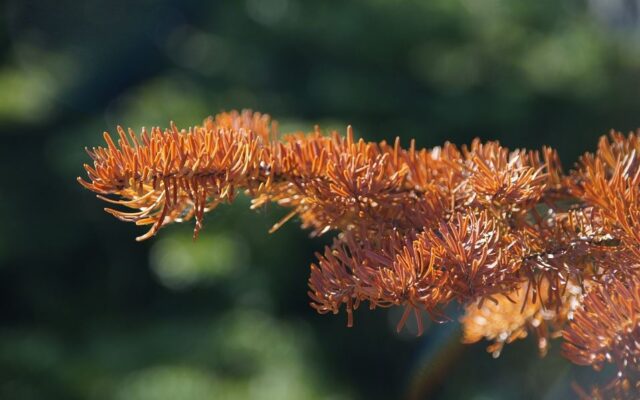
The Environmental Cost of Christmas
With Christmas fast approaching, it’s easy to get wrapped up (quite literally) in the material aspects that this holiday has to bring. Not only does this season make a hole in our pockets, it makes an even greater one in the environment, with this holiday creating an incredibly detrimental impact. Here are some of the ways in which Christmas causes damage to our environment each year:
Excess gifts
With the purchase of endless gifts for family members and friends comes the inevitable unwanted or excess gifts produced by companies to sustain this season’s increased demand. There are invariably Christmas-specific goods produced in line with this holiday’s return each year, not all of which find a home, and thus are sold cheaply following Christmas and – failing this – disposed of in landfill. This, along with the mounds of packaging from opened gifts, creates a dramatic increase in the amount going to landfill each year, with many people choosing to ignore recycling rituals in the often hurried clear-up that comes each boxing day.
Energy for lights
Christmas tree lights and decorative fairy lights inside and outside your property may look the part, creating a picture of festivity, but their environmental impact is far less pretty. Not only do these decorative additions sharply increase utility bills, but they use high levels of electricity, draining our planet’s natural resources one twinkling bulb at a time.
Wrapping paper and cards
The amount of wrapping paper used each year, along with the number of Christmas cards sent and received, creates mountainous levels of excess card and paper, and requires the exploitation of our trees and forests’ natural materials. In the USA, the number of cards sold during the Christmas period requires the harvest of almost 300,000 trees; levels which just cannot be sustained in our ever fragile eco-system.
Christmas trees, both real and fake
Christmas trees, though beautiful and a staple in any home at Christmas, are not beneficial to our environment in any sense. With the chopping down of live trees comes the depletion of their presence within our eco-system, meaning less oxygen is being produced from areas previously rich with these trees’ shrubbery.
However, the alternative – plastic trees – utilise petroleum products (PVC) in their manufacture, requiring the exploitation of resources in their manufacturing and shipping, with harmful byproducts produced during these processes. Both types of tree are typically discarded each year, which for live trees may be understandable since they have died by the end of the festive season, but still figures suggest that of the six million trees bought on average each year, only 1.2 million will be recycled, the rest being left to rot or simply being thrown away. Artificial trees are often used again the following year, but for those which are thrown away, their fate is inevitably a landfill since they are unable to be recycled.
Travelling to see relatives
Christmas is a time to spend with your loved ones, but this doesn’t – for most – mean just nipping next door. Families can be spread out all over the place, with visits requiring the use of cars, trains and other forms of transport, all of which contribute to our carbon footprints.
Glass recycling from all that booze
The festive season is a perfect opportunity to throw parties or simply consume lots of drinks with meals spent with family and friends, and subsequently the amount of glass being generated through bottles is on the increase at Christmas time.
At Brown Recycling, we are committed to providing high quality recycling services to our customers to increase recycling as much as we can to benefit the environment. For more information on our services, get in touch with our friendly team today – we’re always happy to help with any enquiry.
This website uses cookies to enhance your browsing experience and deliver personalised ads. By clicking “Accept All Cookies”, you agree to the storing of cookies on your device to enhance site navigation, analyse site usage, and assist in our marketing efforts.




